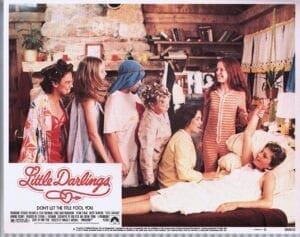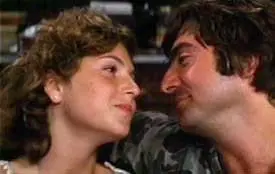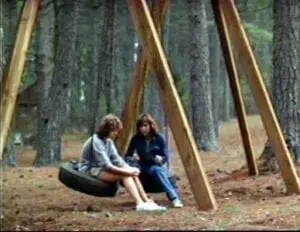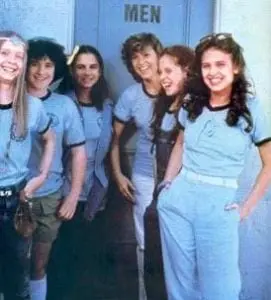Little Darlings
"Don't let the title fool you."
(1980)
starring Kristy McNichol, Tatum O'Neal and Matt Dillon
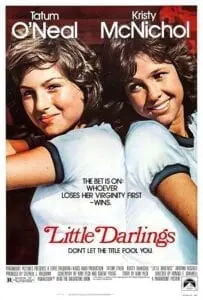
PODCAST:
'80s Movies: A Guide to What's Wrong with Your Parents -
The terrible legacy of Little Darlings.
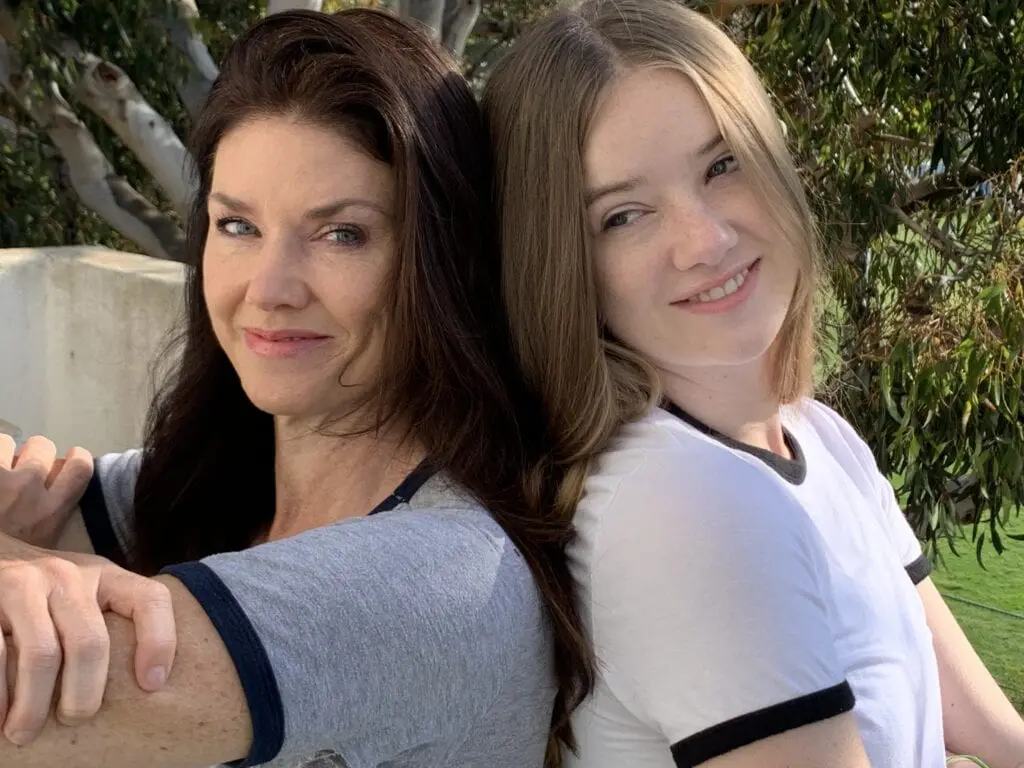
At summer camp, two 15-year-old rivals take bets to see who can lose their virginity first.
Why it’s rad:
- Kristy McNichol and Tatum O'Neal, two teen icons of the late '70s and early '80s, together!
- Matt Dillon, how you doin'?
- Meet Cynthia Nixon.
So '80s:
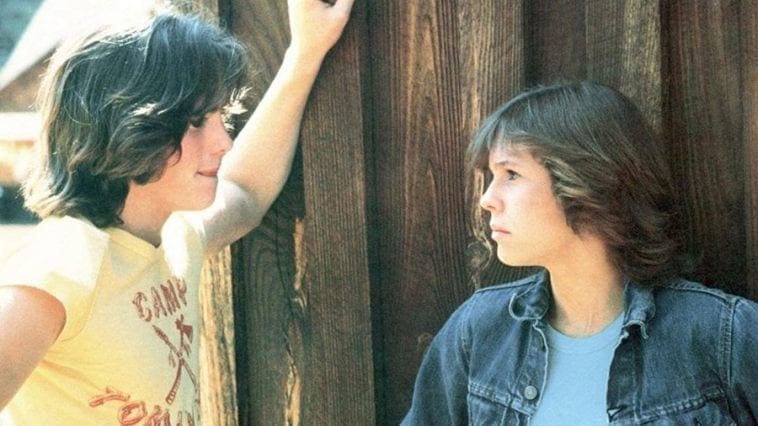
- Ferris' white suit and beret.
- Sunshine the flower child.
- Feathered hair.
- Matt Dillon's long locks.
- The ability to sneak several six-packs of beer into summer camp.
- Blondie, John Lennon, and The Bellamy Brothers on the same soundtrack.
- Teens smoking and running wild with very little adult supervision - welcome to 1980.
Historical Perspective
Mothers leaving to find themselves. Rich kid Ferris is sent off to camp while her parents deal with their marriage difficulties. Primarily, that her mother's run off to find herself, something that was a thing at the time. It was a combination of Women's Lib, women entering the workforce, and society's trend of self-examination. As these things often ended, the wife found she really didn't want to be married - which is the conclusion Mrs. Whitney came to, as well.
Single mothers. Angel is dealing with the other end of the spectrum: fathers who ditched their families. That wasn't exclusive for the late '70s and early '80s, but it sure felt like it was more prevalent.
What’s your damage?
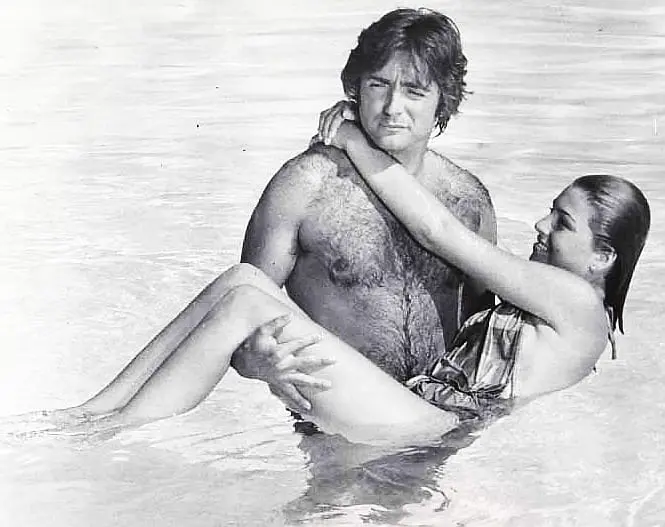
Young teens should be having sex. While the ultimate message of Little Darlings is that sex is a meaningful act that should be shared with someone you trust, that's not really what kids would take away. The idea is that sex was an activity everyone was doing, including tweens and teens. When Cinder asks who is a virgin, all of the young campers say they've "done it." The "decadent" '70s was one big sex machine: everything was about sex or had a sexual vibe. That trickled down. By 1980, young teens were under the impression that sex was something you were doing if you were cool or grown up. As you watch the film today, it feels so unreal to see children talking about sex.
"Older men" are sexy. So, Mr. Callahan didn't take Ferris' bait. But, he liked the attention and he sure did lead her on. He puts his arm around her and encourages her to some degree, although he ultimately sends her home. To young audiences, though, it encouraged the allure of the older man. When Ferris' stakes her claim on her camp coach as her target - who was in his 30s - none of the other girls say "ewwww." Tatum O'Neal later wrote in her autobiography that she lost her virginity at 14 to a man in his 30s, stating that she didn't understand the age difference.
To get someone "in the mood," get them drunk. While Angel's attempt at seducing Randy by plying him with alcohol doesn't work, it's the thought that counts. When we see a girl trying to get a boy drunk so he'll "loosen up" and want to have sex, it validated and encouraged it for both genders.
Sneaking out: it's what kids do. There's a lot of camp counselors sleeping on the job at Camp Little Wolf. Aside from stealing a bus to which there's no repercussions, Angel sneaks out to meet Randy every night. That's normal teenage behavior. Or is it? Or is this idea that kids sneak out projected so much in movies, that kids grow up thinking it's part of life.
A girl's only defining quality is her sexuality. Perhaps the most horrifying thing about Little Darlings is that for the entire summer, the girls don't talk about anything else besides sex. We establish that Cinder is a model - which is based on her attractiveness. Sunshine is into vitamins, but that's to help Ferris become more sexually appealing. When Ferris gets difficult news from her dad, she doesn't tell anyone - just keeps it to herself for quite a while. Angel's tough life is implied, but she mostly keeps that to herself as well. The message to girls: your only value is in your sex appeal and availability. And definitely, keep your mouth shut.
Behind the Scenes
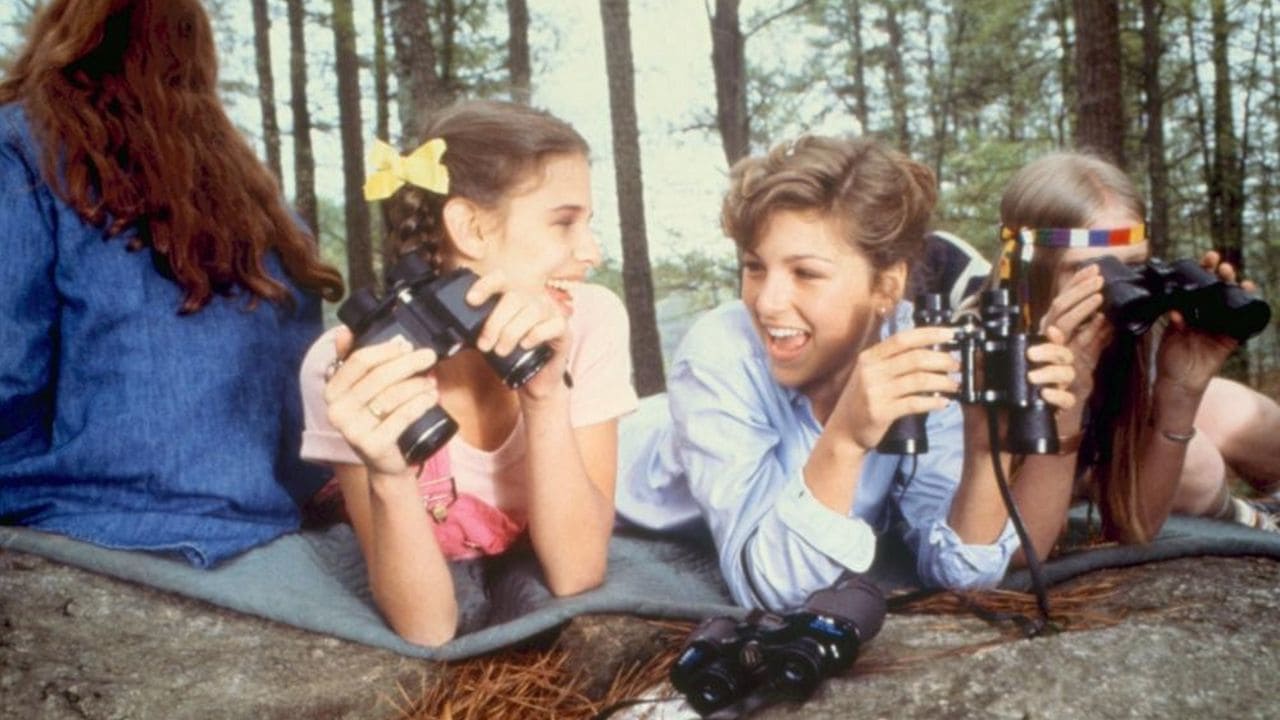
HOW IT CAME TO BE
Kimi Peck was a USC film school grad with Hollywood connections. She was the granddaughter of "a celebrated silent-film writer" and daughter-in-law of Gregory Peck. She lived in a "Bel-Air hillside mansion" that had stables for her horses. She went to private school with the kids of Hollywood's rich, famous and powerful.
The plot came from eavesdropping. According to the AMPAS files, Peck overheard a conversation between a group of 13-year-old girls and wrote the screenplay in six weeks.
Write what you know. A film about wild 15-year-olds was just another day in the life of teen Kimi Peck, to hear her tell it. In an interview with her, LA Magazine summarized: "As she got older, things got more out of control. When she was 16, her 26-year-old boyfriend slammed his sports car into a telephone pole as they raced through Brentwood, and she broke her neck; though hospital caregivers predicted she’d never walk again, she proved them wrong. At 17 she was impregnated by a high school classmate, but her parents and the boy’s parents shared custody of the baby, who, she says, 'grew up to be a fantastic guy.'"
Peck pitched the idea to a producer she'd recently met. Stephen Friedman of Kings Road Productions sparked to the script. According to AFI, Peck negotiated a "lucrative" deal for herself, including an associate producer credit.
To clean up the script, an established writer was hired who the industry believed knew how to write scripts about teen girls (or at least, teensploitation). Dalene Young was 40 years old when the film was made. She’s the writer behind "The Babysitter’s Club," but definitely dips her toes in film written in the realm of “understanding” teens when really, it’s more like teensploitation. Her first credit was the TV movie, "Dawn: Portrait of a Teenage Runaway" (spoiler: Dawn becomes a prostitute). And, 2000’s "Baby Luv" is about a teen girl who sells her babies to pay the rent.
The movie was made to show how teen girls are sexual predators(??!!). In 2018, Dalene Young told The Hollywood Reporter: "15-year-old girls are at a dangerous age. We blame everything on boys, but girls are really more predatory."
It was Ron Maxwell's first feature film. For a while, it would define him. Maxwell had graduated from NYU's film school (alongside Martha Coolidge). Subsequently, he became known for making films that showed kids transitioning to adulthood such as The Parent Trap 2 and Kidco. He moved from kids films to making movies about the Civil War.
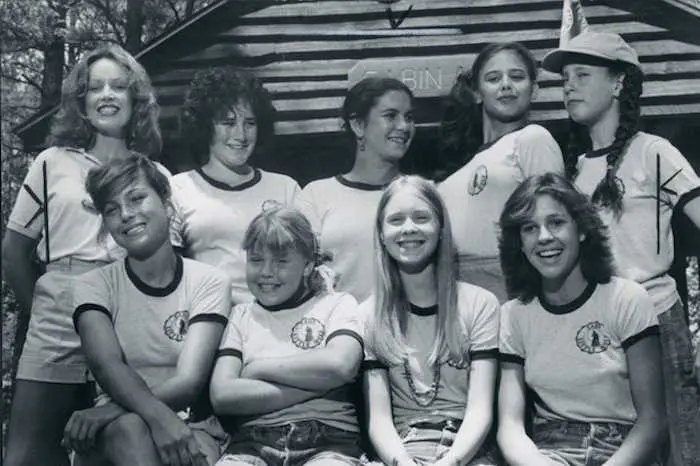
CASTING
Matt Dillon had one credit at the time. Dillon was in eighth grade when he started acting. He was in the film Over the Edge. He played a troublemaker in a small town.
Kristy McNichol was not the first choice. Brooke Shields was the top choice, but the model was too expensive. Jodie Foster was also considered. The writers were disappointed to get McNichol, a TV star, although one who was incredibly popular.
It offered a chance for McNichol to be with girls her age. McNichol was put into the acting pool at a young age. Future interviews would have her lament about not having a childhood. At the time of the film, her mother Carollyn acknowledged to People Magazine that the cracks of that were starting to show, which is why she wanted to star in Little Darlings. “Kristy is immature in some respects because she never had the opportunity to grow up with kids her own age. She missed the relationship of a bunch of girls hanging around together, and that’s kind of sad. That’s why I wanted her to work on Little Darlings with kids her own age.”
Tatum O'Neal was an Oscar winner. O’Neal still retains the title “youngest winner of an Academy Award,” having won for Paper Moon. She’d gone on to make critically acclaimed pictures, Nickelodeon and The Bad News Bears.
McNichol got first choice on which part to play. One report says she was given the choice of playing Angel or Ferris. In the "E! True Hollywood Story," McNichol's manager Jerry Zeiman said it was O’Neal got to pick her part. That makes sense since she prestige actress was O'Neal. When suggested in a press conference she would’ve been better as Ferris, McNichol “glared” at the reporter, and said, “Oh no, I could never have played the richie. I like playing the kid down the street.”
Tatum O’Neal accepted the role of Ferris, but felt she should’ve played Angel. Again, referencing that report that said it was Kristy McNichol who was allowed her pick of roles seems accurate given the girls reactions in the press. "I hated the fact that I played the rich girl," O'Neal told EW. "I think I could have done the other character better than I did Ferris."
Armand Assante replaced the original Mr. Callahan half way through filming. Perry King was originally cast but apparently got into a disagreement with the director or producer before filming began. He left the production and a frantic search was on for his replacement and Assante wasn’t in place until a good portion of filming was complete.
A little Miranda is the peace keeper. The Flower child Sunshine is Cynthia Nixon who become most famous for her role as attorney Miranda on "Sex and the City." Little Darlings is her feature film debut.
Some of the other campers were already familiar to tween audiences. Before she was cast as mean model Cinder, Krista Errickson was a series regular on the TV series "Hello, Larry" and "Diff'rent Strokes." Alexa Kenin ("Dana") was all over TV including a couple of series.
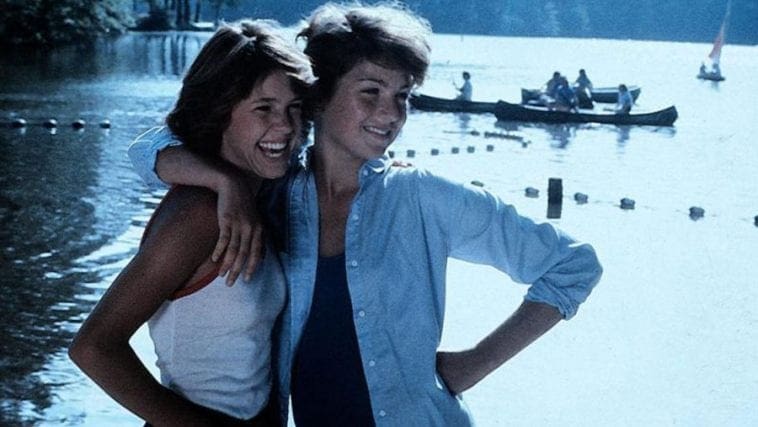
FILMING
The girls weren't the only ones who had to go away for the summer. To recreate a summer camp, the production had to move to the other side of the United States. Hard Labor Creek State Park subs in the for Camp Little Wolf. It’s 50 miles from Atlanta, Ga. Some on the signage placed for the film is reportedly still on site. “Hard Labor” – *gulp*!
Tatum O’Neal already had a reputation. “I thought, ‘Uh-oh, I’m gonna meet someone I have not good nice things about," Kristy McNichol said about her costar. "But she’s so nice. Everyone has their moods – I do too – but most of the time, we got along all right.”
To America, Kristy McNichol was America's Sweetheart. But, to the industry, she was known to get irritated easily. According to People Magazine (March 1980), “the movie’s crew preferred Tatum’s quiet but polite reserve to Kristy’s more impatient sometimes disdainful moods.
Of course, the two leads butt heads. A lot. O’Neal and McNichol were reportedly always fighting. Wren Owen, who was McNichol’s body double, wrote on '80s Rewind that the two were “always in catfights.”
O’Neal taught McNichol how to smoke. The irony of the casting is that, given their reputations, it seemed obvious for O'Neal to play the wild child and McNichol, so wholesome in Family, to play Angel, who is tough and street wise. Angel smokes, but McNichol did not. , Tatum O’Neal gave her the lessons, but it was Kristy who couldn’t break the habit when filming wrapped.
The location shoot meant family and friends joined some key talent in Georgia. Like Ron Maxwell’s children. And Kristy McNichol’s secret girlfriend. Olivia Maxwell, the director's 8-year-old daughter who was an extra as "Little Camper," shared her memories of the shoot, “Kristy McNichol was the best! Her and her girlfriend Ina would take me to amusement parks and Kristy always made me go on the rides like ‘The Swings' I was so scared of. Loads of cotton candy, all kinds of fun! I remember she ate Cocoa Krispies in her trailer and she'd invite my brother and I in for a bowl. She was the all-time coolest. Tatum O’Neill was a huge snob. I did NOT like her. Matt Dillon was also cool. I loved the peach ambrosia on the set and my dad allowed me to sit right next to the actors as they did their scenes.”
Campers were local private school students. The extras were recruited from the nearby schools. That definitely includes the food fight, but let’s hope that doesn’t include the skinny dipping scene.
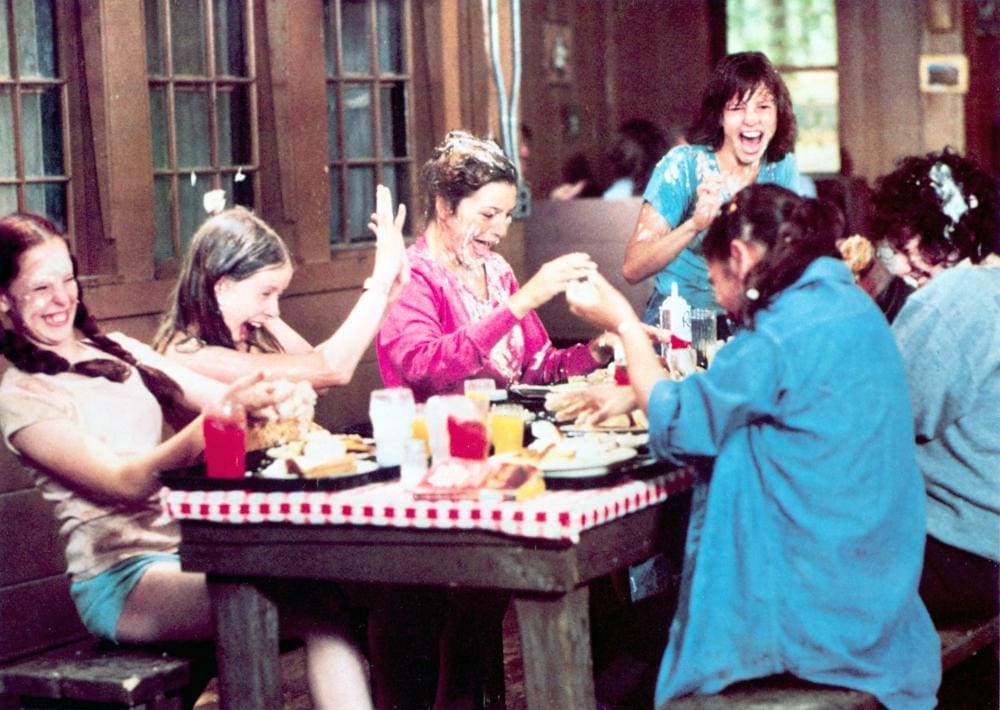
FUN FACTS
Armand Assante wore a girdle. Or a weight-training belt. Whatever it was, in 2014, Tatum O’Neal told Michael Musto, “Armand wore one of those lose-weight things around his waist so he’d look thinner in the movie.”
Kristy McNichol was a town terror during shooting. “She was kicked out of a McDonald’s for coming in on her skateboard. Also, during “a moment of boredom,” People Magazine reported: “Kristy gunned her car into nearby Madison, Ga., and jumping the curb, tore a large ‘donut’ into the town green. Confronted by angry police, the embarrassed production company apologized (as did Kristy personally). ‘I’m just relieved that if my daughter has to be a rebel, she’s ruining grass instead of taking drugs,’ says Carollyn McNichol, Kristy’s mother.”
McNichol was known for being “independent” and wild during shoots. Three years after filming Little Darlings, she had a breakdown that was diagnosed as “an organic chemical imbalance.” A decade later, they identified it as bipolar disorder.
There's an unintentional easter egg. An end of summer scene shows some of the female campers putting on “The Pirates of Penzance,” and Angel watches. Two years later, McNichol starred in The Pirate Movie, in which she watches as her sisters perform the same song.
The young cast created a variety show. Filming on location with a bunch of young teens means boredom, especially in a pre-internet era. To fill the time, the young cast created a “variety show” that was directed by McNichol. However, the kids quickly deemed their leader “a slave driver.”
McNichol and O’Neal were often in contention for roles. Being the same age, physically similar, and both household names, it makes sense the girls were often up for the same parts. The one that was a thorn, though, was The Bad News Bears. They were both cast as “Amanda” at one point, but in the end, the production went with the Oscar winner. McNichol said the loss hurt because “I really understood [Amanda].”
The lengthy on-location shoot shaped Cynthia Nixon 's childhood career. In an interview with her HBO colleague Allison Williams, Nixon said, "When I was 12, I did this film, Little Darlings, with Tatum O’Neal, who was my idol, and Kristy McNichol. We shot for 10 weeks in Georgia, and it was my first year at Hunter High School, which is a very hard school. And when I got home, my parents and I looked at each other and said, 'We can never do that again.'”
Kristy McNichol got a boy friend out of the experience. McNichol said she began dating the hairdresser who was flown into Georgia from Los Angeles to fix her "terrible perm." She was linked to Joey Corsaro for at least two years and was photographed attending events with him as late as 1992. At the time, she was plagued by rumors that she was a lesbian and in a relationship with her best friend Ina Liberace (yep, niece of the pianist). She denied those rumors. In 2012, McNichol came out as gay. Whatever happened, and frankly it's none of our business, it does appear that McNichol had a great, long lasting relationship with Corsaro, who now goes by the name Giuseppe Franco.
Ferris' storyline is actually similar to what Tatum O'Neal experienced two years earlier. In her autobiography, "My Paper Life," O'Neal wrote she was working on International Velvet in 1977 when she set out lose her virginity. She said she put on tight pants to seduce a married crew member in his 30s. She was 14 and hadn't even entered puberty yet. She told The Independent, “I thought something along the lines of, ‘This is what people do.’”
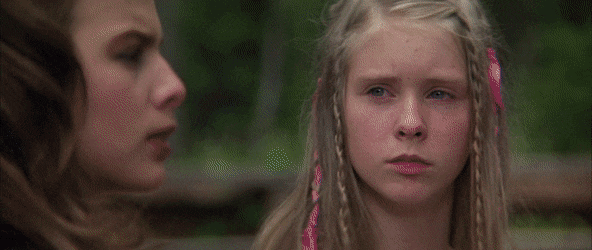
AN R-RATED MOVIE MADE FOR TEENS
It was supposed to be PG. The movie about young teen girls trying to get a boy (or worse, an adult teacher) to sleep with them was intended to be seen by tweens and teens. AFI reports that in the Feb. 1980 article in Millimeter, director Ron Maxwell "noted that he was under pressure to deliver a film that would receive a PG-rating from the Motion Picture Association of America’s (MPAA) Classification & Ratings Administration." Welp, it wasn't.
Of course, the material was too mature for the actresses in the film. O’Neal was 16 and McNichol was 17 during filming through the release. Matt Dillon and Krista Errickson were 15. Cynthia Nixon was 12. And, surely Abby Bluestone ("Chubby") was even younger.
The mature content rating irritated Kristy McNichol. “I have no idea why this film got an R Rating,” she said at a press conference for the film. “There are no real strong swear words and no nudity. This should have been PG rated.”
REVIEWS
The summer camp sex comedy drew comparisons to Bill Murray's breakout hit Meatballs (1978). Most critics seemed to feel bad for Tatum O'Neal and Kristy McNichol and didn't have a kind word for writers Kimi Peck and Dalene Young or director Ron Maxell. Rotten Tomatoes lists it at 57% rotten with an audience score of 74%.
Roger Ebert criticized the uneven direction but appreciated the sensitivity around McNichol's sex scene. He wrote: "Little Darlings" really wants to be two movies at once: A fairly serious film about teenagers and sex, but also a box-office winner like National Lampoon's Animal House or Meatballs.
The Washington Post's Gary Arnold called it "disenchantingly tacky and exploitative." His review was scathing. He was unsettled by the material and praised only McNichol, but missed out on who would become the biggest, lasting movie star: "One is left with the unpleasant impression that Little Darlings was animated by an idle longing to exploit its popular teen-age costars for cheap thrills. The depictions are discreet, but the context is obstinately smutty. There's simply nothing else on the agenda except O'Neal's efforts to seduce a camp counselor played by Armand Assante and McNichol's parallel efforts on a young Neanderthal played by Matt Dillon, who suggests not James Arness but an adolescent mutation of Sylvester Stallone's Rocky."
The New York Times' Janet Maslin called the screenplay "inept." She wrote, "If Little Darlings were funnier about other things, it might have the wherewithal to keep the plot's sexual undertones from becoming unpleasant. But the movie's jokes are listlessly vulgar, and they fit in all too well with the prevailing nasty air."
The Hollywood Reporter called it a "teenybopper Animal House." The critic thought the film was repulsive in a different way: "It's just as gross as it is funny -- although it goes for a sensitive, sentimental ending."
Variety's review focused on the "excellent" talent of Kristy McNichol and Tatum O'Neal. While it praises the "honest effort," it's only criticism is pretty light: "In his feature debut, director Ronald F. Maxwell isn’t perfect. But he gets several fine scenes from his performers, especially when O’Neal deals with her love interest, when NcNichol deals with her love interest, and best of all, when O’Neal and McNichol finally level with each other."
Time reprimanded that"both girls deserve a better vehicle than Little Darlings. Frank Rich wrote: "The film's tone is confused and predictable: lame slapstick gags (including the inevitable food fight), sentimental bromides about love, and deadly serious (if inexplicit) sex scenes are thrown together without transitions. Even the heroines' slowly developing friendship is sketchily written; it seems to happen offscreen. While McNichol and O'Neal always command attention, the drama they create has less to do with Little Darlings than with the intriguing vicissitudes of show business careers."
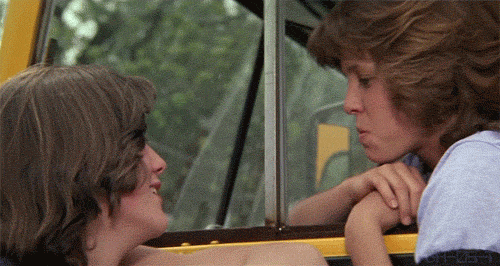
LEGACY
Despite bad reviews, Little Darlings was a box office smash. The teen sex comedy had an opening weekend take of $4.6 million. In 3 weeks, it was at $24 million. It's domestic gross came in at $35 million. That's a success by today's standards for an R-rated comedy, so in 1980, that was bananas. Box office reporting was somewhat unreliable in 1980 to assess its overall placement for the year, but The Numbers puts it at 19. In June of 1980, The Village Voice identified it as one of the big hits of the year as of that point.
Kristy McNichol became a movie star. She was already a well-respected TV star, having won two Emmys for her work as Buddy on the Aaron Spelling drama “Family.” “The movie became a huge success and really launched Kristy into the feature world. She was kind of America’s sweetheart," her manager Jerry Zeiman said on the E! True Hollywood Story. “Then, I started looking for material for Kristy because no one was writing star vehicles for someone as young as Kristy at 16 or 17 where she could pretty much carry a movie at that point.” For her next film, McNichol was paid “7 figures.”
Little Darlings was made into a TV movie by Paramount Television directed by Joel Zwick. This version starred Pamela Adlon (then called Pamela Segall) as Angel – Adlon is best known today for her starring role in the FX series “Better Things” as well as having a prolific voice-over career in animation. Tammy Lauren was “Farris” Whitney. At the time, Zwick was a hot TV sitcom director, having directed several episodes of popular series like "Mork and Mindy," "Laverne & Shirley," and "Bosom Buddies." While he's had a robust career in family-friendly TV, in the feature world he's known for helming My Big Fat Greek Wedding (2002)- made by the production company of his former Bosom Buddy, Tom Hanks.
Matt Dillon became a bonfide sex symbol. Despite negative reviews targeting him for "neanderthal" and emotionless acting, Dillon's career soared, especially once he became the muse of the S.E. Hinton book adaptations. At the time, he expressed the transformation like this to People: “One kid got mad at me because his girlfriend liked me in Little Darlings. He said, ‘You can play American Gigolo someplace else.’ I walked away, but he made me look bad, so I slapped him around.”
Ron Maxwell and Kristy McNichol reteamed for their next film. If there were issues on set with McNichol's temperament, it certainly didn't bother Maxwell. The two followed up on the success of Little Darlings the next year with The Night the Lights Went Out in Georgia, which costarred Dennis Quaid and Mark Hamill. And, this meant that the two returned to Georgia for filming.
Marsha Mason and Kristy McNichol reteamed for Only When I Laugh (1981). Mason and McNichol proved their excellent mother-daughter chemistry in Little Darlings. Mason was the wife and muse of the film's screenwriter Neil Simon, whose work dominated the '70s and '80s. It's hard to imagine she didn't recommend McNichol for the role.
Paramount Pictures put a remake into development in the 2000s. In 2007, Moviehole reported an exclusive scoop that Paramount Pictures was rebooting the film. Playwright Eydie Faye (on and off camera sister of Jeff Cohen, aka "Chunk," of The Goonies) was writing the script. In 2010, J.J. Abrams' Bad Robot had the film on its slate and it's still listed as in development. According to IMDb Pro, the script is now being written by the Life Partners (2014) writing team of Joni Lefkowitz and Susanna Fogel (who also wrote the 2019 critically-acclaimed comedy Booksmart).
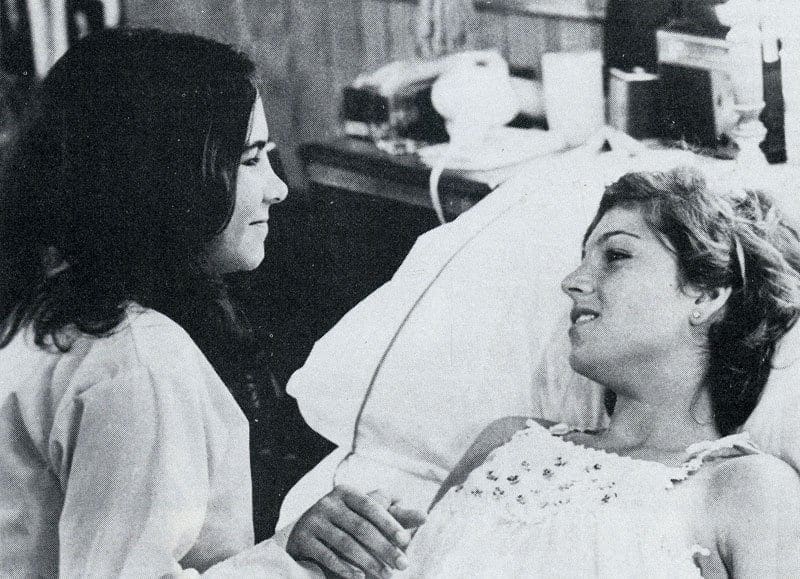
WHERE ARE THEY NOW?
Kristy McNichol withdrew from Hollywood and avoids any publicity. Kristy McNichol is a symbol of a misunderstood star who finally escaped Hollywood after receiving extraordinarily harsh scrutiny. But, slowly, the picture became clear. In 1980-82, she made 7 movies. In 1983, she had a breakdown that MGM described as a "chemical imbalance" that forced her to stop shooting I Won't Dance. She publicly denied the rumors that she was manic depressive. In the '90s, there was an appropriate diagnosis: she was suffering from bipolar disorder.
Alexa Kenin died five years later. The actress who played "Dana" was a familiar face of the early 1980s. She did guest appearances on TV shows kids often watched, and was a favorite in the ABC Afterschool Specials (which all '80s kids watched). Shortly after she wrapped filming the role of Sam’s best friend Jena in Pretty in Pink, she was found dead in her Manhattan apartment. The cause of death is unknown. The coroner’s report states that it was “complications due to asthma,” however rumors flew at the time that wasn’t the case, and the family didn’t want people to know the real reason. One of the biggest rumors is that she died of a heroin overdose.
Tatum O'Neal's career fizzled amidst a personal roller coaster. O'Neal followed up this hit comedy with the Canadian drama A Circle of Two which has an uncomfortable premise. She played a young girl who falls in love with a 60-year-old painter (Richard Burton) she meets at a porno theater; she was only 16, yet is shown topless. She earned $250,000 (compared to McNichol's $1 million pay for her follow up film) and was "universally ridiculed," according to Wikipedia. Her next film Prisoners was out of Australia where she, again, plays a teen whose dad takes a job at a New Zealand prison where she falls for an inmate; it was so bad, Ryan O'Neal reportedly purchased the rights to ensure it was never released. In the meantime, Tatum's personal life was difficult: she has now shared that she was sexually molested many times before shooting Little Darlings. She was no stranger to drugs and alcohol in a family with serious substance and physical abuse issues. She met tennis superstar John McEnroe in 1984 and they married in 1986 and had three children. After divorcing in 1994, O'Neal became a heroin addict. After being arrested, she went to rehab, got cleaned up, wrote books opening up about her extraordinary but tragic childhood. In 2017, she and her daughter Emily McEnroe, co-hosted the podcast "Verbatim, Tatum."
Matt Dillon is a household name. Matt Dillon's star rose in the '80s. The1989, he received credibility for being more than a pretty face with his critically-acclaimed turn in Drugstore Cowboy. Since then, he's become an acting icon, showing a deftness in comedy and drama (*our favorite role is grunge rocker Cliff in Singles). In 2004, he was nominated for an Academy Award for his work in that year's Best Picture winner Crash.
Cynthia Nixon became an icon of female friendship in "Sex and the City." Nixon became practical attorney Miranda in the generation defining HBO series that had everyone deciding if they were a Carrie, a Charlotte, a Miranda, or a Samantha. While balancing a successful acting career, Nixon is now pursuing politics.
Krista Errickson became a political journalist and consultant. After having worked steadily in the '80s, MTV drew Errickson in for the launch of their Rock the Vote youth voting campaign, which was promoted through celebrity talent. It impacted the rest of her life: she went on to become a journalist and later (and currently) works on presidential campaigns, including Hilary Clinton's 2016 run and Joe Biden's current campaign.
Ron Maxwell became known for Civil War movies. In the 1990s, Maxwell pivoted away from kids movies. He made the 4 1/2 hour Civil War odyssey Gettysburg (1993), followed a decade later by the 3 hour 40 minute epic Gods and Generals (2003). His final film, a decade later, was Copperhead (2013) (we should note, this one was just two hours long).
Abby Bluestone became a talent agent. Bluestone had one other film role, but took an interest in kids in the entertainment industry. Working as an agent for Innovative Artists, she's nurtured the careers of kid stars through the decades such as Britt Robertson, Amanda Seyfried, Corbin Blue, Mena Suvari, Jennie Garth, and Jonathan Taylor Thomas.
Marsha Mason is a series regular on hit shows. Mason's career slowed down, perhaps due to family priorities or casting difficulties due to age, but she still had films or TV shows around once a year. The last decade's been good to her: she was Frankie's mom in "The Middle" and is currently a regular on the Lily Tomlin-Jane Fonda series "Grace & Frankie" on Netflix.
Armand Assante remains a prolific actor. Age hasn't slowed Assante down. The Emmy winner and four-time Golden Globe nominee makes several films a year and lists 15 films in post-production at the beginning of 2020. While most of the films you never have and never will hear of, still, the dude is in his 70s.
Kimi Peck was on the run for a decade for animal cruelty. The young woman behind Little Darlings - the one who conceived, wrote, sold, and produced the film -- has had the most bizarre turn of events. LA Magazine did a lengthy interview and profile in 2015, identifying what went wrong. Peck used her earnings to purchase a car (a Jag!) and a mini ranch with a stable of horses, and made her home into an animal refuge. She was brought in to work on the TV movie of Little Darlings, but other than that, none of her scripts were produced. Eventually, needing income, she sold her estate and wrote and directed porn with titles like The Hunchback of Nasty Dames and Outlaw Sluts. In 1997, her hobby of rescuing chihuahuas was becoming problematic, and she was evicted when her landlord became aware she had more than 100 animals suffering from neglect. But after turning her hobby into a nonprofit rescue, she became celebrated. Animal Planet dedicated an episode of their series Adoption Tails to her efforts. Celebrities helped encourage donations. In 2005, Peck was recognized by People Magazine in an article titled "Dog's Best Friend." However, her shelter became overcrowded and then, it seems, became a scam. She solicited donations but didn't care for the animals, who were neglected and locked in cages. She became a notorious animal hoarder who went on the run with a Facebook page dedicated to tracking her down.
Soundtrack
The Little Darlings soundtrack is a slice of 1980 with a variety of popular music. The success of getting those acts has turned into a distribution nightmare. "The film has about a dozen 'needle drops' — brief moments of what were big hits at the time," Ron Maxwell said to The Hollywood Reporter in 2018. "But the Paramount lawyers only got rights for theatrical and broadcast TV. It's now easier to see D.W. Griffith's Intolerance than Little Darlings."
"Let Your Love Flow" by The Bellamy Brothers
Director: Ronald F. Maxwell
Screenwriter: Kimi Peck, Dalene Young
Release Date: March
Rating: R
Opening Weekend Rank: unknown
Opening Weekend Box Office: unknown
Lifetime Gross: $34.3 million
Budget: $5.3 million
Production Company: King’s Road Entertainment
Distributor: Paramount Pictures

